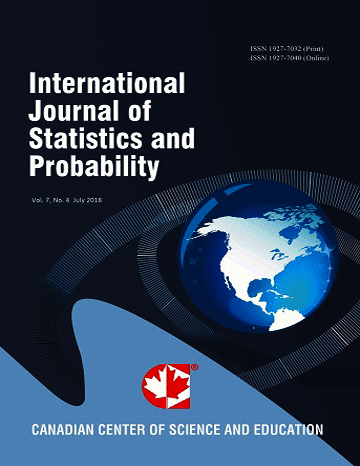Demographic Effects on Fertility Among Reproductive Aged Women in Ghana. A Demographic and Health Survey Analysis
- William Angko
- Joseph Kwame Wulifan
Abstract
In this paper, we argue that fertility is among the key components in the demographic transition process of many global economies. The study used the 2014 Ghana Demographic and Health Survey. We applied the conventional neo-classical consumer-theoretic approach to model the demand of children. The study aimed to estimate the demographic effects on fertility among women of reproductive age 15-49 in Ghana using the negative binomial regression. The results indicated that the age of women at first births, mother’s years of education, number of unions, wealth level, women occupations, Partners occupation, contraceptive use and intention, marital status, are significant and negatively associated with the number of children ever born. However, current age of the woman, fertility preference, decision maker on contraceptive use, child sex, number of living children and experienced of the death of a son and/or daughter resulting from replacement effect and hoarding effects and residing in rural areas have positively and significantly influence fertility in Ghana. We recorded variations in the effects of some variables in total, urban and rural samples. We conclude that reduction in child mortality, increasing women access of formal education, increasing women power in decision making on contraceptive use, increasing access to and use of contraceptives as well as reducing income disparity between urban and rural population by providing employment opportunities in rural areas are keys policy issues that could help achieve fertility reduction in Ghana.
- Full Text:
 PDF
PDF
- DOI:10.5539/ijsp.v11n4p1
Index
- ACNP
- Aerospace Database
- BASE (Bielefeld Academic Search Engine)
- CNKI Scholar
- DTU Library
- Elektronische Zeitschriftenbibliothek (EZB)
- EuroPub Database
- Excellence in Research for Australia (ERA)
- Google Scholar
- Harvard Library
- Infotrieve
- JournalTOCs
- Mir@bel
- Open policy finder
- ResearchGate
- Technische Informationsbibliothek (TIB)
- UCR Library
- WorldCat
Contact
- Wendy SmithEditorial Assistant
- ijsp@ccsenet.org
